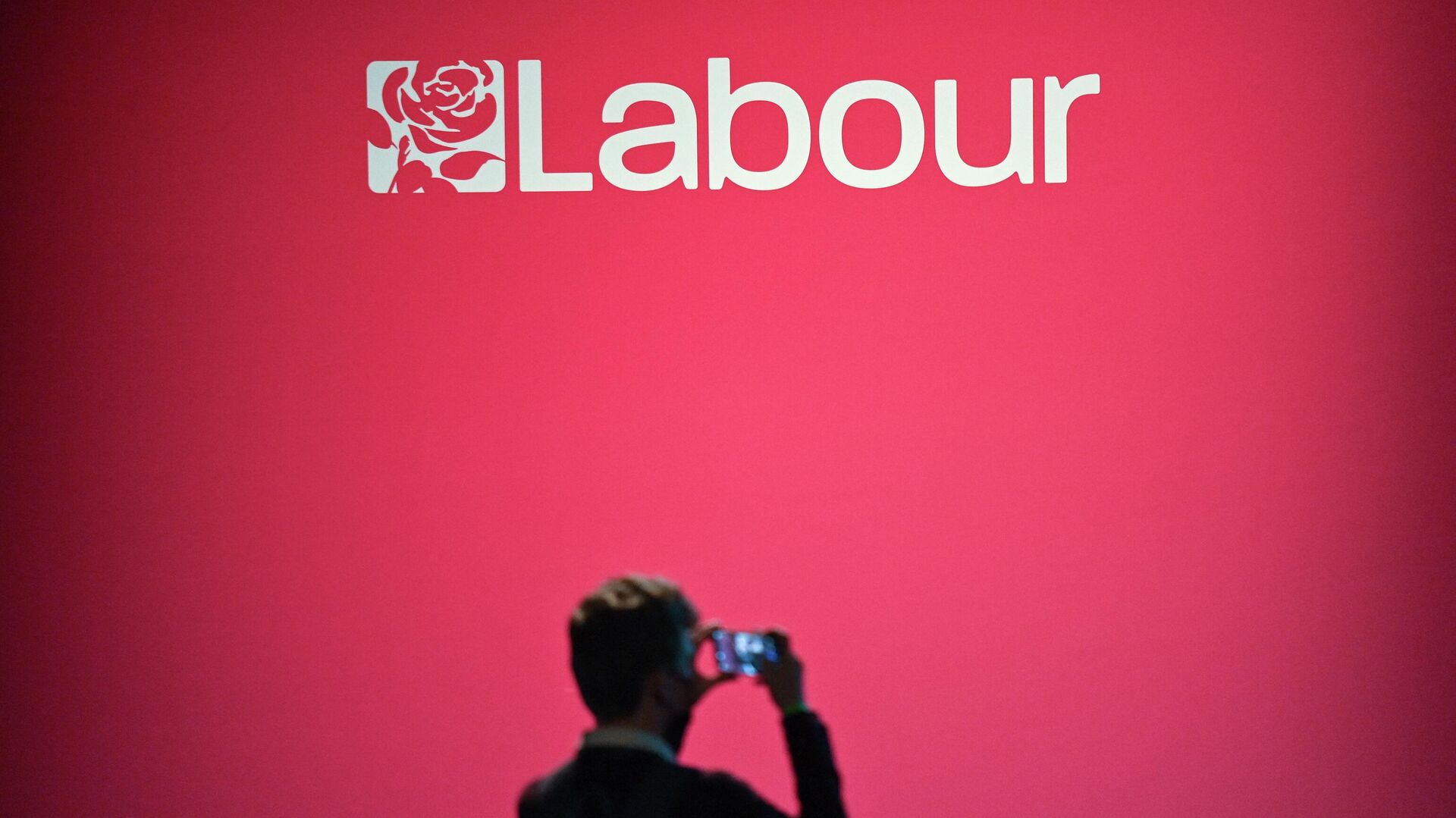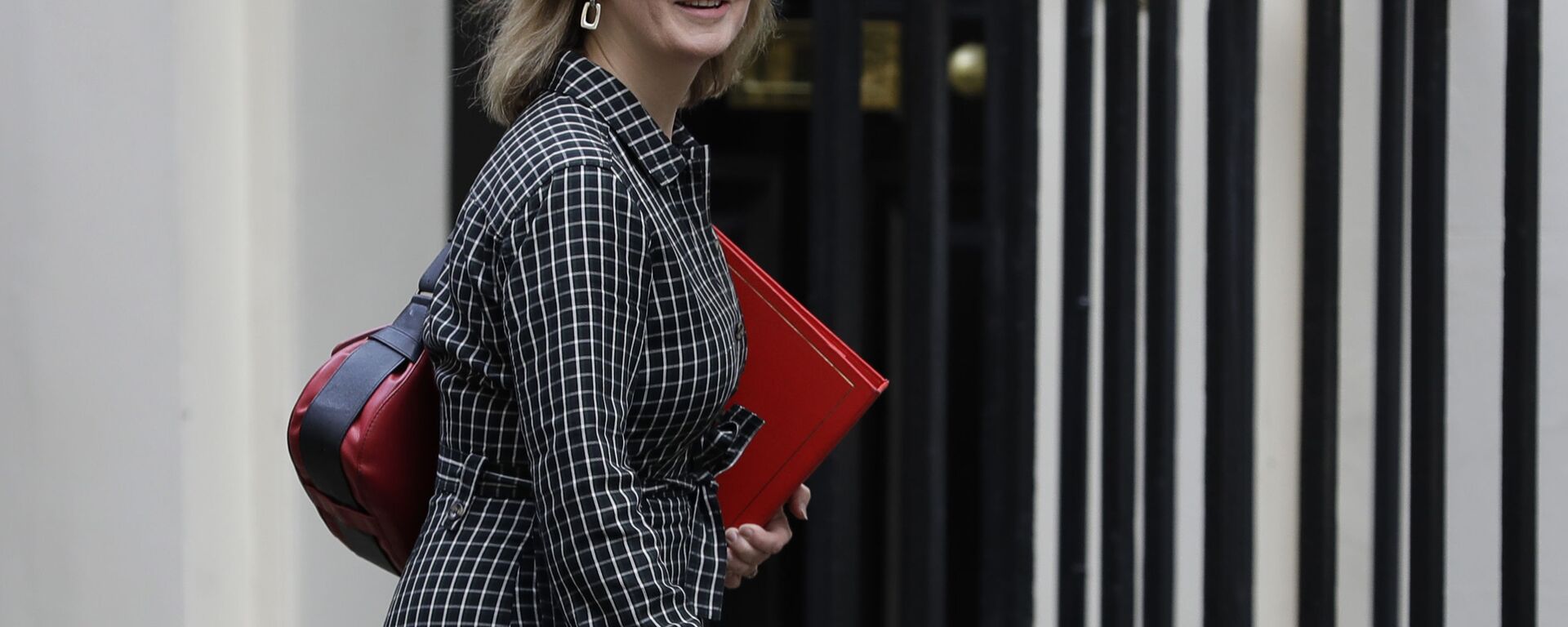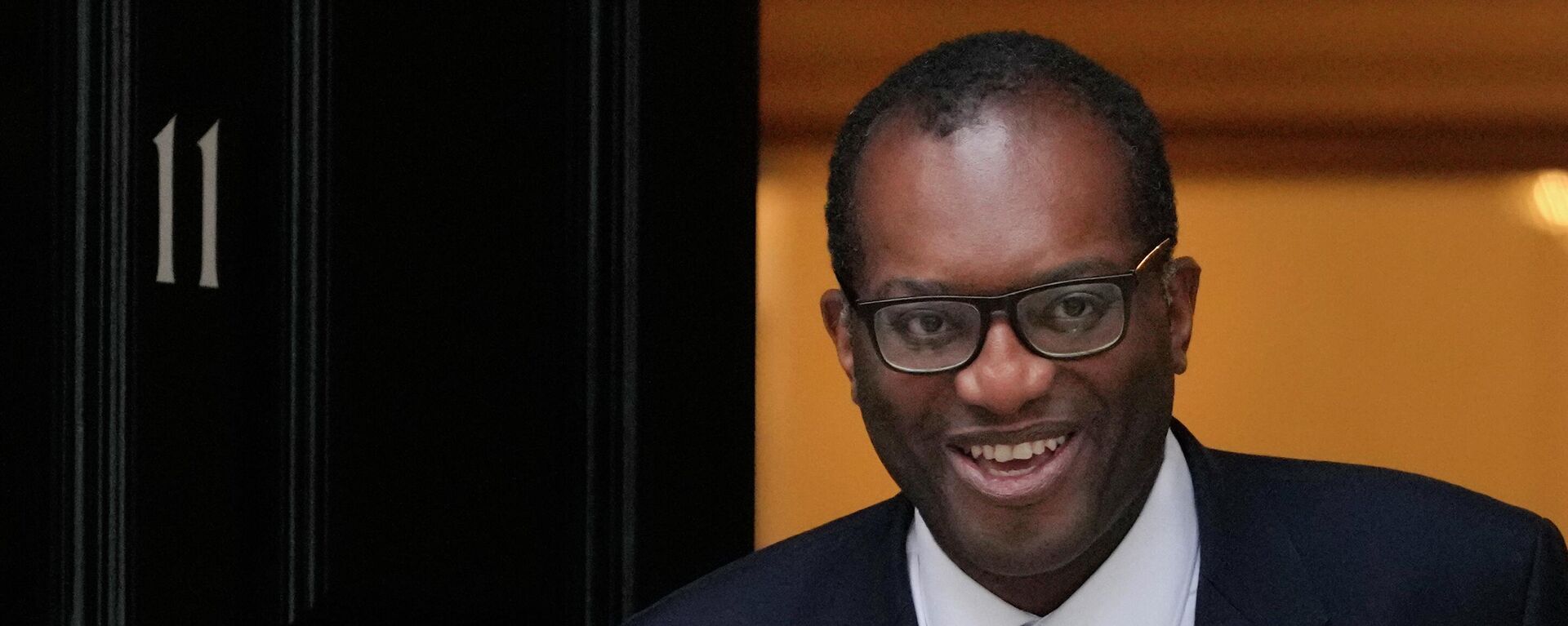Labour Gain 33-Point Vote Intention Lead Over Tories Amid UK Financial Market Turmoil -YouGov Poll
06:05 GMT 30.09.2022 (Updated: 15:21 GMT 28.05.2023)

© AFP 2023 / JUSTIN TALLIS
Subscribe
Labour was on course for a 56-seat majority at the next election, a Savanta survey and analysis for the Labour List website suggested earlier in the week. Labour would secure 353 seats – an increase of 154 – while the Tories would lose 146, the seat-by-seat analysis showed.
Britain’s opposition Labour party has gained a 33-point vote intention lead over the ruling Conservatives, a YouGov Poll revealed.
After £45 billion ($48 billion) of unfunded tax cuts were revealed in Chancellor Kwasi Kwarteng’s mini-budget last Friday, triggering UK financial market turmoil, Labour was leading with 54% of the vote, up nine points, according to the poll carried out on September 28-29.
Meanwhile, the survey of more than 1,700 British adults showed UK Prime Minister Liz Truss’ Tories have plummeted down seven points to 21% of current vote intention.
The lead that the UK opposition party currently boasts is its highest ever recorded in any published poll since the late 1990s. It is also a record high share for Labour in any YouGov poll.
A YouGov poll for the Times carried out earlier in the week showed that some 45% of adults would vote Labour, compared to 28% for the Tories, according to the newspaper. The 17-point lead by Labour - the opposition party’s largest in over two decades of the pollster’s work – came hot on the heels of Chancellor of the Exchequer Kwasi Kwarteng’s fiscal package, laid bare on Friday.
‘Serious Crisis With a Lot at Stake’
Earlier in the week, the pound sterling plummeted by more than 4% to $1.0327 for the first time in 37 years in the wake of the unveiling of the massive package of tax cuts on September 22 by Kwasi Kwarteng, as part of what has been dubbed a mini-budget.
The pound touched an all-time low against the dollar on Monday, with gilts also suffering a selloff amid market fears that the government’s strategy would stoke inflation and raise the national debt. The ensuing economic turmoil forced the Bank of England (BoE) to intervene on Wednesday, embarking on an estimated £65 billion ($70 billion) buy-up of bonds. The move came amid what a Treasury source described to The Independent as “serious concerns about the short-term financial stability of some of the major pension funds in the UK.”
Earlier on Thursday, British Prime Minister Liz Truss, who took office on September 6 after defeating former finance minister Rishi Sunak to win the Conservative Party's leadership contest, attempted to defend her controversial plans. Truss insisted she was willing to make “controversial and difficult decisions.”
The PM told the BBC that Britain was facing “very, very difficult economic times,” but she was prepared to “take urgent action to get our economy growing, get Britain moving and also deal with inflation.”

29 September 2022, 05:57 GMT
Amid investor panic over her government’s strategy, Liz Truss will hold emergency talks with the head of the Office for Budget Responsibility (OBR) Richard Hughes on Friday, as well as Chancellor Kwasi Kwarteng, the Guardian reported. The meeting will come as Truss faces urgent calls from the Treasury select committee to bring forward the government’s financial statement. Originally set for publishing on November 23, there have reportedly been urgent calls to bring it forward by at least a month to help calm market jitters.
The OBR meeting was “like trying to read the manual after you’ve broken the thing,” a government insider was cited as saying.
According to the Treasury select committee’s chair, Mel Stride, the path out of the current economic situation was “not a very broad path. There is a lot of work to be done. This is a huge challenge.”

29 September 2022, 05:57 GMT
A number of Conservative lawmakers have publicly lambasted Truss's economic plans.
Tory MP George Freeman said on Twitter that the “economic package of borrowing & tax cuts” failed to “command market or voter confidence." He deplored what was shaping up to be a “serious crisis with a lot at stake."
Those of us who backed Rishi Sunak lost the contest but this poll suggests that the victor is losing our voters with policies we warned against. For the good of our country, and the livelihoods of everyone in our country, I still hope to be proven wrong https://t.co/8nOcKlKEIB
— Huw Merriman MP (@HuwMerriman) September 26, 2022
Another lawmaker, former Northern Ireland Secretary Julian Smith, urged the government to reverse the abolition of the 45% top rate of income tax. Under the mini budget, this is to come along with a scrapping of the cap on bankers’ bonuses.
In a statement with many positive enterprise measures this huge tax cut for the very rich at a time of national crisis & real fear & anxiety amongst low income workers & citizens is wrong. https://t.co/EeRfAcNGzf
— Julian Smith MP (@JulianSmithUK) September 23, 2022
The MP for Skipton and Ripon tweeted that the “huge tax cut for the very rich at a time of national crisis & real fear & anxiety amongst low income workers & citizens is wrong”.
While the situation has left Liz Truss’s administration rattled and facing financial and political backlash from unnerved Tory MPs over its strategy tailored to address the cost of living crisis, it has buoyed Labour’s hopes.
In his keynote speech on Tuesday at the Labour Party’s annual conference in Liverpool, leader Sir Keir Starmer sought to position Labour as the party of ‘fiscal responsibility,’ saying they stand for “sound money.”
“What we’ve seen in the past few days has no precedent: the government has lost control of the British economy. In one bold move on Friday the Tory party gave up on any claim it may have had to be a party of aspiration,” Starmer said.
According to Starmer, this was Labour's best chance to win power since 2010, following four straight election defeats.
A Savanta survey and analysis for the Labour List website earlier suggested the party was on course for a 56-seat majority at the next election. It claimed suggested Sir Keir Starmer’s party could win 353 seats at the next election - an increase of 154 - while the Tories would lose 146, returning to parliament with just 211 MPs. A number of ‘Red Wall’ seats, which swerved to Tory for the first time at the 2019 general election, would also return to Labour control, it claimed.
Angela Rayner, deputy Labour leader, told delegated at the said her party was ready to lead the nation.
“Labour doesn’t just have a vision for this country - we have a plan,” she stated at Labour’s conference in Liverpool.




